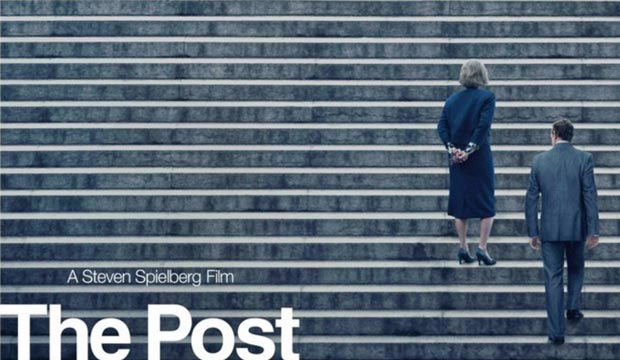The Post is directed by Steven Spielberg, and stars Meryl Streep and Tom Hanks.
In 1971, Kay Graham inherits the Washington Post newspaper from her deceased husband, with the intention of taking the fledgling publication public via a stock offering. When classified documents from the Vietnam War begin surfacing, including cover-ups spanning decades, Graham and her editor Ben Bradlee are faced with the decision of whether or not to publish the content of said documents, giving the truth to the public about the war that continues to rage overseas. Upon the New York Times coming under fire for posting similar content, Graham must make the decision of risking everything she has worked for over the years.
Steven Spielberg is that rare director that has remained relevant for nearly half a century, with a massive filmography, and nearly every movie he has made achieving some degree of success. Truly, the man has more hits than misses to his name. His films run the gamut from fictional action adventures to true historical stories. The Post falls into the latter camp, and despite a few minor issues with its execution, there is no doubt this film will be another jewel in Spielberg’s crown. What little the film lacks, it makes up for with its brilliant casting, unflinching storytelling, and a genuine crisis faced by its cast that feels authentic, dramatic, and powerful throughout.
The leads in the film, Tom Hanks and Meryl Streep, bring their best to The Post, and it shows throughout the entire film. Streep, in particular, is brilliant as a widow who has struggled to provide for her family and keep the Washington Post afloat, making attempts to take the paper public, and potentially sacrificing everything, revealing the truth about Vietnam to the public, even if means going against people she has long been friends and acquaintances with, including Secretary of Defense Robert McNamara. Hanks is superb as editor Ben Bradlee (the role previously played by Jason Robards in All the President’s Men), providing an ideal friend and foil alike to Streep, although anyone who sees this film will agree that it is Streep’s film first and foremost. All performances in the film, including those from the supporting cast, fare exceptionally well.
The situation explored in the film is not exactly anything new; films over the debate of the First Amendment’s freedom of the press have been made for years. But The Post succeeds here because it shows not only the workers of The Washington Post and their decision to publish, but also their day-to-day lives and what they have faced over the years, reaching the places they find themselves in the film’s setting. Graham and Bradlee both have families to think about, and with the New York Times having faced the persecution of the courts for publishing similar documents, the conundrum the leads end up in feels all the more authentic and gripping.
There are, however a few issues that keep the film from greatness, however. In its duration of just under two hours, the viewer is bombarded with countless characters and pieces of information, and it can become a great deal for one to digest and take in. Likewise, the narrative seems to have the expectation that its audience is already at least somewhat familiar with the Vietnam War and American history/events of the era. One of my personal favorite scenes in the film was Graham giving a heartfelt and teary-eyed speech to her daughter about her situation, but since the film doesn’t really take the time to flesh out family relationships, the scene doesn’t have the impact that it should.
Likewise, the film’s opening and closing sequences do not work as well as they could. The movie opens with Vietnam battlefield footage, which feels more like the setup for a different movie; if they felt the need to show footage of the war in Vietnam, newsreel footage would have been more subtle and appropriate. Similarly, the ending of the film feels like a teaser for a sequel or for All the President’s Men; the film, a true story that concludes on a mostly high note, did not need this. Worded epilogues describing the aftermath of the film would have been more appropriate and informative to the audience. For example, what happened in the years that followed, and what is the current state of the Washington Post? Obviously, the paper still exists today, so some info to bridge this would have been appreciated.
The Post is not a perfect film, but succeeds through Spielberg’s direction, and the fantastic performances from Streep and Hanks. Moviegoers wanting to see a true story from this era in history with a fantastic cast will not be disappointed.
Rating: Three out of four stars.
DISCLAIMER: All images in this review are the copyright of their respective owners, including (but not limited to) 20th Century Fox. For promotional use only. All rights reserved.

